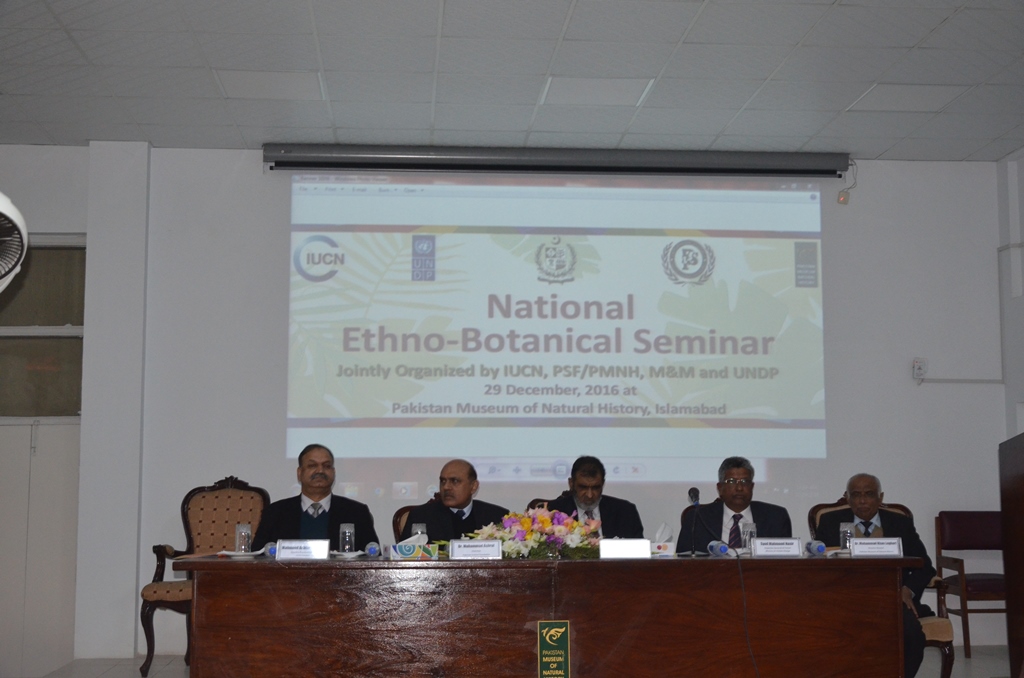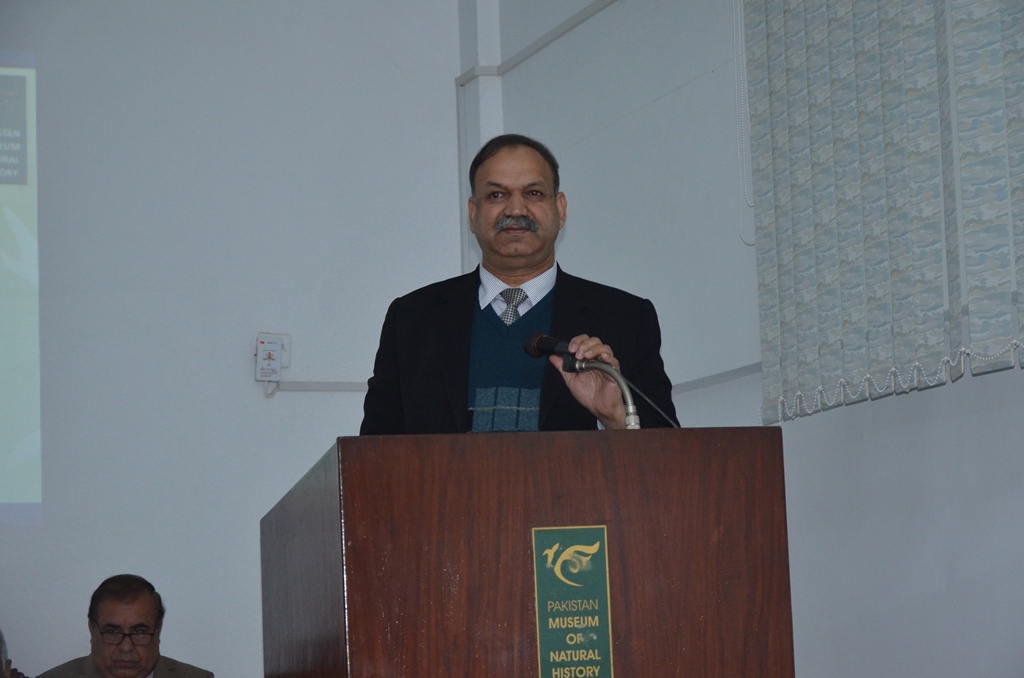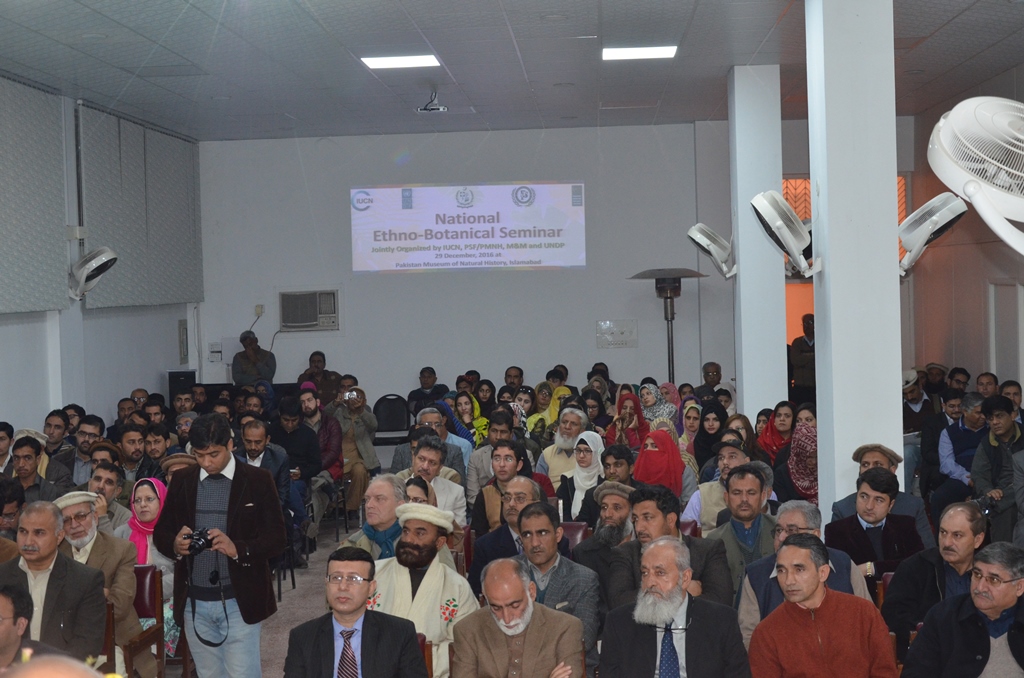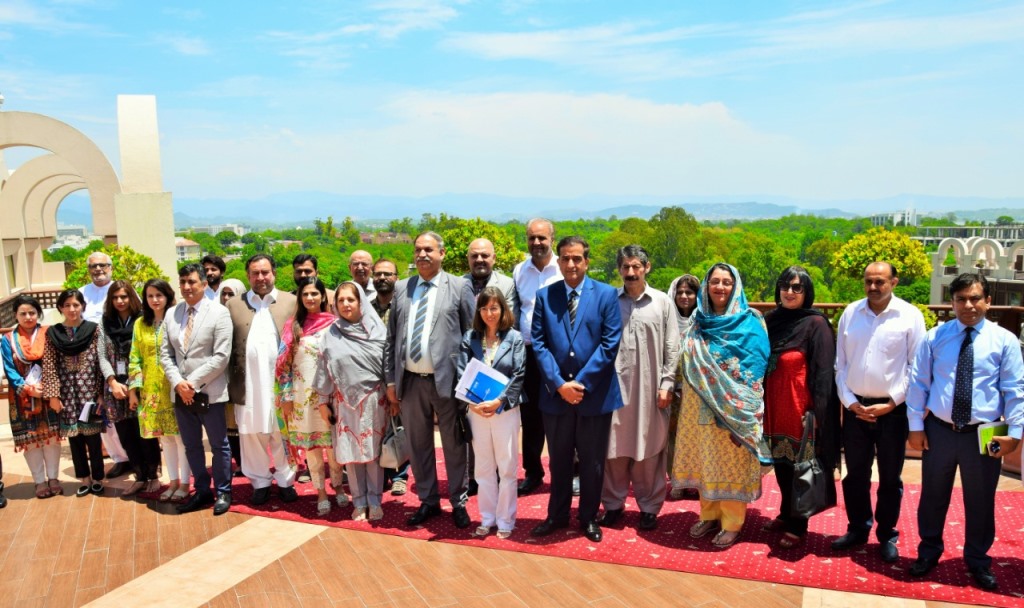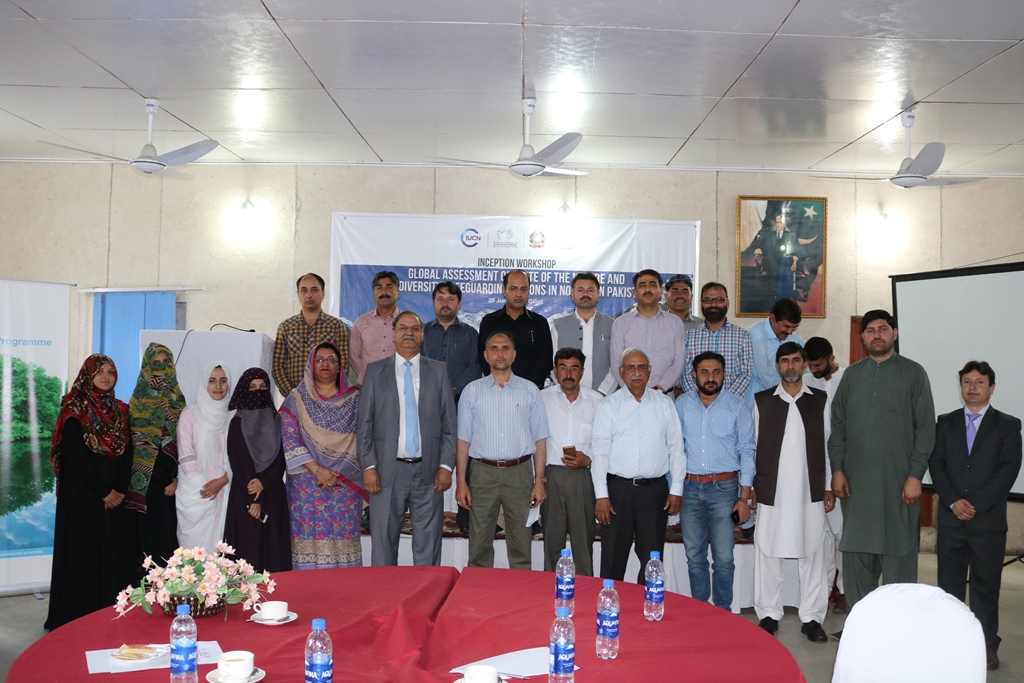Mountains and markets: Ministry, experts at ethnobotanical seminar highlight need for sustainable harvesting of Pakistan’s biodiversity products
A national seminar on ethno-botany was organized by IUCN, the International Union for Conservation of Nature, in Islamabad on 29th December, 2016, where experts highlighted the importance of the rich flora found in Pakistan’s northern region, and underscored the need for ensuring a sustainable use of biodiversity products, including herbs and plants, used often for the benefit of humans.
Representatives from the Ministry of Climate Change, Government of Pakistan, UNDP, IUCN as well as experts from the forestry and herbal sectors, and academia, participated in the event.
The seminar was organized as part of the Mountain and Markets Project being executed by IUCN in partnership with the Ministry of Climate Change and UNDP in the northern areas of Pakistan. The project focuses on developing community and institutional capacity for certified production of 'biodiversity-friendly' Non-Timber Forest Products (NTFP) in northern Pakistan and stimulates market demand for biodiversity friendly NTFP thereby creating new economic incentives for conservation.
The chief representative from the Ministry of Climate Change was Syed Abu Ahmad Akif, Federal Secretary, at the Ministry of Climate Change, who reminded the audience that, “Pakistan has a lot of botanical diversity and a potential for economic growth especially the rural people in mountainous northern areas. Economic scope of Botanical products is expanding day by day across the globe, and therefore there is a need to ensure a speedy and quality-focused value chain, while ensuring a sustainable use of such products.
Syed Mahmood Nasir, Inspector General Forest / National Project Director (NPD) Mountain & Market Project, noted that “all governments preserve the indigenous herbs and plants, and these should be protected for the benefit of humans. Referring to the Nagoya Protocol, he said that the herbal and plant medicine was a billion-dollar industry “and the world is now moving towards organic and herbal medicine – the industry is likely to grow as more and more people are becoming aware.” “But the challenge in this is to ensure that we use these products in a sustainable manner,” he explained. He mentioned that one of the key components of the project was the formation of the Business and Biodiversity Roundtable (BBRT) which brought together collectors, buyers and companies working on herbal medicine, and trained them in certifications and “and we have brought them to the stage where our herbs from Pakistan can be certified for export.” He urged that herbal companies which are using various plants and herbs in their medicines, should refer to the CITES (the Convention on International Trade in Endangered Species of Wild Fauna and Flora) list which mentions all import, export, re-export and introduction from the sea of species covered by the Convention through a licensing system.
Mr. Mahmood Akhtar Cheema, Country Representative IUCN Pakistan, said that in the project “we have worked with communities to establish biodiversity conservation in northern Pakistan. Mountain and Markets have tried to add value to the complete value chain of the Non-Timber Forest Products so that the products become more marketable and the benefits accrue to the communities. Under the Mountain and Markets Project IUCN will also develop community’s institutional capacity as Community Based Enterprises for certified production of 'biodiversity-friendly' products and stimulate market demand for biodiversity friendly products thereby creating new economic incentives for conservation.”
Prof. Dr. Muhammad Ashraf (S.I.) Chairman, Pakistan Science Foundation, explained that “Ethno-botany is where culture, environment, plant and human being interaction is seen and studied in a broad spectrum. Pakistan does not have a proper botanical garden, the way you find in other countries.” He said Pakistan is planning to establish a full-fledged botanical garden which will have all types of biomes.
For more information, please contact:
George Sadiq
Programme Officer
Education Communication and Outreach
Cell: 0301-2931184
E-mail: george.sadiq@iucn.org
